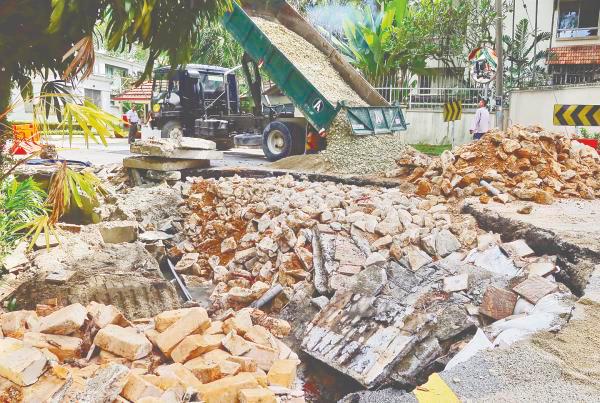WILL we learn a hard and painful lesson from the Jalan Masjid India Kuala Lumpur sinkhole tragedy?
The tragic incident, which claimed the life of an Indian tourist, has raised serious concerns about safety in the city.
While the causes of sinkholes are well-understood, the focus now shifts to whether Kuala Lumpur, with its limestone cavities and underground shifts, is at risk.
In response to various comments and social media discussions about the city’s safety, Kuala Lumpur Mayor Datuk Seri Maimunah Mohd Sharif has reassured the public, stating that there is no solid evidence to support claims that the city is unsafe.
Lest we forget the collapse of a condominium in Ampang due to soil movement caused by underground waterways, any reassurances must be backed by tangible actions.
The government’s push for utilities-mapping is, therefore, timely and worrisome. Housing and Local Government Minister Nga Kor Ming plans to propose that local authorities, relevant agencies and utility companies collaborate on implementing underground utility mapping.
It appears that there has been a lack of centralised and coordinated infrastructure and geological mapping among the various parties involved, including those in electricity, telecommunications and waterworks, and developers.
Nga’s statement follows closely on the heels of Communications Minister Fahmi Fadzil’s call for KL City Hall, relevant agencies and utility companies to work together on creating underground utility maps.
This initiative aims to prevent unwanted incidents, particularly during project developments. It is a timely concern across the board to have a well-coordinated and centralised utilities mapping in place.
Moreover, we cannot overlook or dismiss the research conducted by academics in geology and engineering. All findings must be effectively communicated to the public.
Given the drastic changes in weather patterns and rising water levels, it is crucial to advance a well-coordinated, authoritative and thorough study of geological shifts. This is especially important in areas like Kuala Lumpur, where limestone formations are sporadic. Such efforts must be pursued with great commitment and determination.
If past approvals for buildings and developments are now found to pose significant risks, immediate action must be taken without hesitation. Concerns about financial losses or political repercussions should not come at the expense of public safety. The Madani government has a duty to provide clear assurances, effective mitigation measures and comprehensive plans for future developments.
J.D. Lovrenciear









